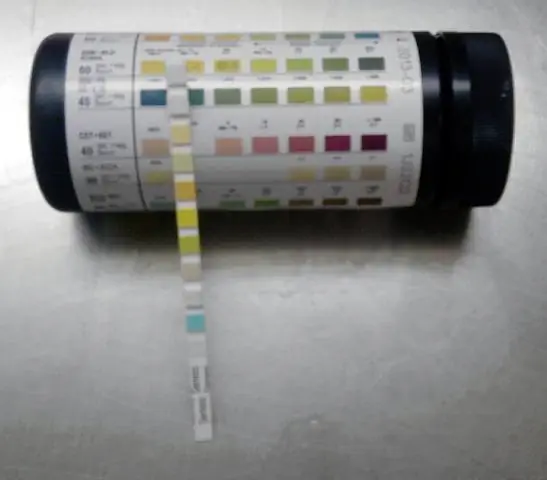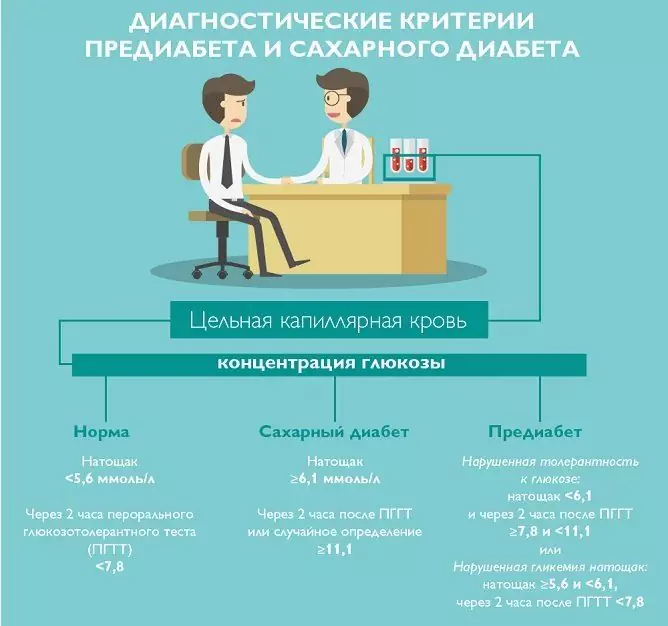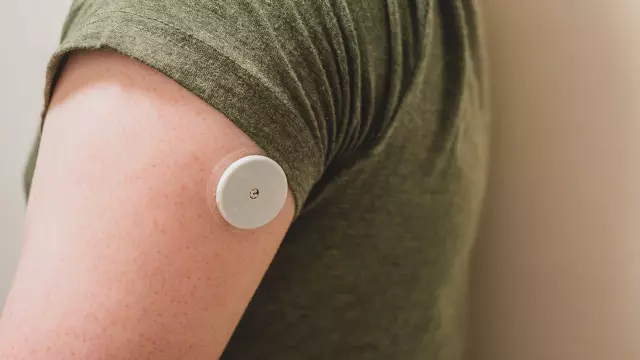- Author Rachel Wainwright wainwright@abchealthonline.com.
- Public 2023-12-15 07:39.
- Last modified 2025-11-02 20:14.
Ascorbic acid with glucose
Ascorbic acid with glucose: instructions for use and reviews
- 1. Release form and composition
- 2. Pharmacological properties
- 3. Indications for use
- 4. Contraindications
- 5. Instructions for the use of Ascorbic acid with glucose: method and dosage
- 6. Side effects
- 7. Overdose
- 8. Special instructions
- 9. Use in childhood
- 10. Drug interactions
- 11. Analogs
- 12. Terms and conditions of storage
- 13. Terms of dispensing from pharmacies
- 14. Reviews of ascorbic acid with glucose
- 15. Price of Ascorbic acid with glucose in pharmacies
Latin name: Ascorbic acid with glucose
ATX code: A.11. GB
Active ingredient: Ascorbic acid + Dextrose (Ascorbic acid + Dextrose)
Manufacturer: MEDISORB, CJSC (Russia)
Description and photo update: 2018-17-05
Prices in pharmacies: from 4 rubles.
Buy

Ascorbic acid with glucose is a drug that compensates for the deficiency of vitamin C (ascorbic acid).
Release form and composition
Dosage form of Ascorbic acid with glucose - tablets: flat-cylindrical, white, with a line and a chamfer (in contoured and non-cellular packs of 10 pcs., In polymer cans of 20, 30, 50, 80 or 100 pcs.; In a cardboard box 1, 2, 3, 5 or 10 packs or 1 can).
Active ingredients in 1 tablet:
- ascorbic acid - 0.1 g;
- dextrose (glucose) monohydrate - 0.61 g.
Auxiliary components: stearic acid; potato starch.
Pharmacological properties
Pharmacodynamics
Vitamin C helps to increase the body's resistance, plays a key role in the regulation of tissue regeneration, blood clotting, carbohydrate metabolism, redox processes. It is not formed in the human body, but comes with food. Ascorbic acid deficiency does not occur with a balanced diet.
Dextrose improves the antitoxic function of the liver, enhances the oxidation-reduction processes in the body, and takes part in various metabolic processes. It is completely absorbed by the body, not excreted by the kidneys (its appearance in the urine indicates pathology).
Indications for use
According to the instructions, Ascorbic acid with glucose is used for the prevention and treatment of hypovitaminosis C, to ensure the body's high need for ascorbic acid in the following cases:
- recovery period after severe and prolonged illness;
- stressful conditions;
- overwork;
- high physical and mental stress;
- lactation period;
- pregnancy;
- growth period.
Contraindications
Absolute:
- thrombophlebitis;
- tendency to thrombosis;
- diabetes;
- conditions accompanied by high blood sugar;
- increased blood clotting;
- age under 3 years old;
- individual intolerance to the components that make up the drug.
A relative contraindication, in the presence of which the appointment of Ascorbic acid with glucose requires caution, is a deficiency of glucose-6-phosphate dehydrogenase.
Instructions for the use of Ascorbic acid with glucose: method and dosage
The tablets are taken orally after meals.
Dosing regimen:
- prevention: 0.05-0.1 g of vitamin C per day;
- therapy: adults - 0.05-0.1 g of vitamin C 3-5 times a day; children - 0.05-0.1 g of vitamin C 2-3 times a day.
During pregnancy and during breastfeeding, 0.3 g of vitamin C is prescribed per day for 10-15 days, then - 0.1 g per day.
The duration of therapy is determined by the doctor depending on the nature and course of the pathology.
Side effects
During the period of taking Ascorbic acid with glucose, allergic reactions to the components that make up the drug may develop.
Overdose
There are no data on overdose of Ascorbic acid with glucose.
special instructions
During the period of taking the drug, it is necessary to monitor blood pressure and kidney function, since vitamin C has a stimulating effect on the synthesis of corticosteroid hormones.
It should be borne in mind that long-term intake of high doses of ascorbic acid with glucose can cause inhibition of the function of the insular apparatus of the pancreas. In this regard, during therapy, regular monitoring of the functional capacity of the pancreas is important.
Pediatric use
The drug is contraindicated in children under 3 years of age.
Drug interactions
The effect of ascorbic acid with glucose on drugs / substances in combined use:
- benzylpenicillin, tetracyclines: increases their concentration in the blood;
- ethinyl estradiol (including as part of oral contraceptives): ascorbic acid at a dose of 1000 mg per day increases its bioavailability;
- iron preparations: improves their absorption in the intestine, can increase the excretion of iron when taken in combination with deferoxamine;
- heparin, indirect anticoagulants: reduces their effectiveness;
- acetylsalicylic acid: its excretion in the urine decreases;
- oral contraceptives: reduces their concentration in the blood;
- drugs with an alkaline reaction (including alkaloids): increases their excretion by the kidneys;
- acids: slows down their excretion by the kidneys;
- short-acting sulfonamides, salicylates: increases the risk of crystalluria;
- ethanol: increases its overall clearance;
- isoprenaline: reduces its chronotropic effect;
- ethanol, disulfiram: with long-term treatment or taking high doses, ascorbic acid may interfere with the interaction of these drugs;
- mexiletine: vitamin C in high doses increases its excretion through the kidneys;
- antipsychotics, phenothiazine derivatives: reduces their therapeutic effect;
- tricyclic antidepressants, amphetamine: reduces their tubular reabsorption.
The effect of drugs / substances on a drug in combination therapy:
- oral contraceptives, acetylsalicylic acid, alkaline drinks, fresh juices: reduce absorption and assimilation of the drug;
- acetylsalicylic acid: increases the excretion of vitamin C in the urine and reduces its absorption;
- ethanol: reduces the concentration of vitamin C in the body;
- glucocorticoid drugs, salicylates, calcium chloride, quinoline series agents: deplete reserves of ascorbic acid during prolonged therapy;
- primidone, barbiturates: increase the excretion of vitamin C in the urine.
Analogs
An analogue of Ascorbic acid with glucose is Vitamin C.
Terms and conditions of storage
Store in a place protected from light and moisture at temperatures up to 25 ° C. Keep out of the reach of children.
Shelf life is 2 years.
Terms of dispensing from pharmacies
Available without a prescription.
Reviews about Ascorbic acid with glucose
According to reviews, Ascorbic acid with glucose is inexpensive and effective in stimulating the immune system against the background of a cold and preventing vitamin C deficiency in the spring-winter period. Among the disadvantages are the taste of the tablets.
Price for Ascorbic acid with glucose in pharmacies
The approximate price of Ascorbic acid with glucose (40 tablets per package) is 39 rubles.
Ascorbic acid with glucose: prices in online pharmacies
|
Drug name Price Pharmacy |
|
Ascorbic acid with glucose 100 mg + 877 mg tablets 10 pcs. RUB 4 Buy |
|
Ascorbic acid with glucose 100 mg chewable tablets 10 pcs. RUB 5 Buy |
|
Ascorbic acid with glucose 100 mg + 877 mg tablets 10 pcs. RUB 6 Buy |
|
Ascorbic acid with glucose Meligen 1 g tablets 10 pcs. RUB 7 Buy |
|
Ascorbic acid with glucose 100 mg + 877 mg tablets 10 pcs. RUB 8 Buy |
|
Ascorbic acid with glucose 100 mg + 877 mg tablets 40 pcs. 22 RUB Buy |
|
Ascorbic acid with glucose 100 mg + 877 mg tablets 20 pcs. RUB 30 Buy |
|
Ascorbic acid with glucose tablets 100mg 40 pcs. 35 RUB Buy |
|
Ascorbic acid with glucose tablets 20 pcs. RUB 47 Buy |
| See all offers from pharmacies |

Anna Kozlova Medical journalist About the author
Education: Rostov State Medical University, specialty "General Medicine".
Information about the drug is generalized, provided for informational purposes only and does not replace the official instructions. Self-medication is hazardous to health!






